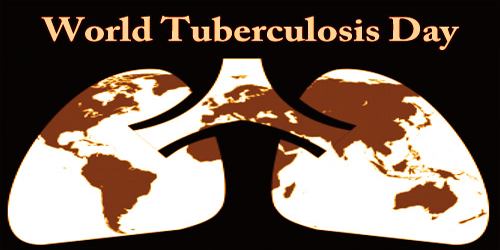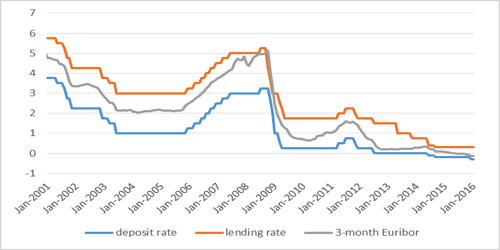World Tuberculosis (TB) Day is a day to educate the public about the impact of TB around the world. This day observed on 24 March each year, is designed to build public awareness about the global epidemic of tuberculosis (TB) and efforts to eliminate the disease. The date marks the day in 1882 when Dr. Robert Koch announced that he had discovered the bacterium that causes TB, which opened the way towards diagnosing and curing this disease. In 2012, 8.6 million people fell ill with TB, and 1.3 million died from the disease, mostly in low and middle-income countries.
TB remains the world’s deadliest infectious killer. Each day, nearly 4500 people lose their lives to TB and close to 30,000 people fall ill with this preventable and curable disease. Global efforts to combat TB have saved an estimated 54 million lives since the year 2000 and reduced the TB mortality rate by 42%. To accelerate the TB response in countries to reach targets – Heads of State came together and made strong commitments to end TB at the first-ever UN High-Level Meeting in September 2018.
World TB Day is one of eight official global public health campaigns marked by the World Health Organization (WHO), along with World Health Day, World Blood Donor Day, World Immunization Week, World Malaria Day, World No Tobacco Day, World Hepatitis Day and World AIDS Day.
Various World Tuberculosis Day events and activities are organized by various organizations involved in the Stop TB Partnership. WHO is a United Nations’ (UN) health authority that works with this network to promote World Tuberculosis Day each year. Campaign activities include:
- Community discussion groups that are organized to look at ways to prevent TB.
- Award ceremonies or other events to honor the life and work of those who dedicate their lives to prevent and fight against TB.
- Photo exhibitions that showcase images to raise worldwide awareness of TB.
- Charity events to raise funds for disease control (of TB) in countries that need assistance.
People, community groups, and government agencies may also take the time to work with broadcast, print, and online media to promote stories on the awareness of tuberculosis and the works of those who help fight against the spread of the disease.
In 1982, on the one-hundredth anniversary of Robert Koch’s presentation, the International Union against Tuberculosis and Lung Disease (IUATLD) proposed that 24 March be proclaimed an official World TB Day. This was part of a year-long centennial effort by the IUATLD and the World Health Organization under the theme “Defeat TB: Now and Forever.” World TB Day was not officially recognized as an annual occurrence by WHO’s World Health Assembly and the United Nations until over a decade later. In the fall of 1995, WHO and the Royal Netherlands Tuberculosis Foundation (KNCV) hosted the first World TB Day advocacy planning meeting in Den Haag, Netherlands; an event they would continue co-sponsor over the next few years.
In 1996, the World Health Organization (WHO) joined the union and other organizations to promote World TB Day. The Stop TB Partnership, called the Stop TB Initiative at the time of its inception, was established in 1998. It is a network of organizations and countries fighting tuberculosis. WHO works with this partnership to support the activities and events that take place on World Tuberculosis Day each year.
World Tuberculosis Day is an observance and is not a public holiday. The global campaign for World Tuberculosis Day has had different themes and slogans over the years. For example, the 2010–2011 campaign’s theme was “Innovation” and the slogan was “On the move against tuberculosis. Innovate to accelerate action”.
Today the Stop TB Partnership, a network of organizations and countries fighting TB (the IUATLD is a member and WHO houses the Stop TB Partnership Secretariat in Geneva), organizes the Day to highlight the scope of the disease and how to prevent and cure it.
The World Health Organization (WHO) has launched a joint initiative “Find Treat All #EndTB” with the Global Fund and Stop TB Partnership, with the aim of accelerating the TB response and ensuring access to care, in line with WHO’s an overall drive towards Universal Health Coverage.
This World TB Day, WHO calls on governments, affected communities, civil society organizations, health-care providers, and national/international partners to unite forces under the banner “Find Treat All #EndTB” to ensure no one is left behind.
Information Sources:
















